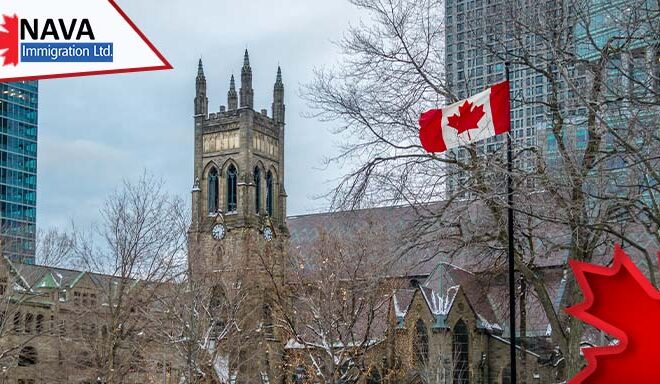What You Must Know About Entering Canada With Your Past DUI?
The 2025 International Conventions of Alcoholics will be held in Vancouver from July 3-6 next year. If you are considering attending but have had previous altercations with the law, it’s best to start planning your visit to Canada as soon as possible. Here’s what you must know about entering Canada with your past DUI.
Well, this year’s event will mark the 90th anniversary of the birth of A.A in 1935. The event takes place once every five years, but its previous edition in 2020 was canceled because of the pandemic, thus making this a highly anticipated return.
The 2025 edition will feature meetings, workshops, dances and events to celebrate sobriety worldwide. So, if you – or a loved one – would like to, here are some things you need to know!
Having A Prior DUI Offense Can Lead To You Being Denied Entry Into Canada
In case you have a past conviction, arrest, warrant, or pending charge for ‘driving under the influence’ (DUI), you could be barred from entering Canada.
This is because DUI is now considered a serious criminal offense in Canada and can render a person inadmissible. If found inadmissible, you can be denied a visa or electronic travel authorization (eTA), or you might be refused entry at the border.
If you have other past criminal offenses stemming from alcohol consumption, this can also lead to problems when trying to enter Canada. For instance, if you have committed two or more summary offenses – such as public intoxication, indecent inhibition, or causing a disturbance – you might be inadmissible.
You need not have been convicted to be found inadmissible, you could be found inadmissible if you have simply been arrested and are still awaiting formal charges or the final verdict.
How To Interpret Canadian Law When It Comes To A Prior DUI Offense
In order to know about entering Canada with your past DUI, you must first know how to interpret Canadian law when it comes to such DUI offenses.
Well, for immigration purposes, Canadian authorities convert foreign crimes into their Canadian equivalents. This equivalency test involves comparing the laws of foreign nations with the Canadian Criminal Code and other Acts of Parliament.
On December 18, 2018, Canada imposed tougher penalties for those convicted of impaired driving, doubling the DUI maximum punishment from five years to ten years in prison.
This implies that if you committed a DUI offense abroad on or after December 18, 2018, you might be inadmissible to Canada on grounds of serious criminality.
Moreover, if you are unfamiliar with Canadian laws or lack the expertise to interpret foreign laws and how they compare to Canadian laws, you might wish to consult an immigration lawyer.
There Are Ways To Overcome Inadmissibility and Enter Canada
There are different ways to overcome your criminal inadmissibility, depending on the severity of your offenses, the number of offenses committed, and when you complete your last sentence.
Here are your options to know about entering Canada with your past DUI:
1. Temporary Resident Permit (TRP)
If you are inadmissible but have compelling reasons to travel to Canada, you can apply for a temporary resident permit.
To obtain a TRP, you must prove that your need to enter Canada outweighs Canadian society’s health and safety risks. This must be determined by an immigration or border services official.
Since the immigration officer will ultimately decide whether to grant your TRP, it is best to prepare the strongest possible application justifying your reasons for entry.
It is also significant to note that the TRP only grants temporary entry to Canada. They are typically only issued for short periods to cover the length of your visit to Canada. Also, your TRP might be issued for three years if you have very strong reasons to be in the country.
Most individuals must apply for their TRP through the visa application center in their country of residence. Americans might apply for TRPs at the border. However, this can be risky since the decision rests entirely with the immigration officer. As such, it is best to plan in advance if you need a TRP for an important event. The Government does not list processing times for TRP applications, but they might take over six months to process.
2. Criminal Rehabilitation
If five years have passed since the completion of your DUI sentence, you can apply for criminal rehabilitation. Unlike the TRP, criminal rehabilitation permanently waives inadmissible. If approved, you will no longer be considered criminally inadmissible to Canada.
To be approved, you need to demonstrate that you are unlikely to be involved in any future criminal activity.
If it has been less than five years since the completion of your sentence, you are not yet eligible for criminal rehabilitation and need to apply for a TRP.
When applying for criminal rehabilitation, an officer will review the application and any supporting documents before making the final decision.
The entire process can take up to six months to a year or longer. The Government does not list processing times for criminal rehabilitation.
If you are inadmissible but eligible, it is best to start planning this to ensure a smooth entry into Canada.
No one can apply for criminal rehabilitation at the border – you must apply through your appropriate visa application center.
3. Deemed Rehabilitation
Another thing to know about entering Canada with your past DUI is deemed rehabilitation.
If more than ten years have passed since the completion of your DUI sentence and you only have one single, non-serious conviction on your record, you might be deemed rehabilitated.
You do not need to apply for deemed rehabilitation. If you meet the criteria, you are automatically deemed rehabilitated for the crime that rendered you inadmissible.
Even so, if you have doubts about claiming deemed rehabilitation, it is best to consult an immigration lawyer. An immigration lawyer can prepare a legal opinion letter for you, clearly explaining that you are deemed rehabilitated.
It is vital to note that if more than one non-serious conviction or your DUI offense took place after December 2018, you are not eligible for deemed rehabilitation. In these cases, you need to apply for a TRP or criminal rehabilitation.
4. Legal Opinion Letter
Beyond deemed rehabilitation, there are other situations where you might not be inadmissible to Canada. For example, if your DUI was expunged or you were granted and successfully completed ‘withheld’ or ‘deferred’ adjudication.
In such cases, it is best to consult with an immigration lawyer. They might be able to prepare arguments in the form of a legal opinion letter explaining why you should not be considered inadmissible to Canada on grounds of criminality.
If you seek information on how to begin your Canada immigration application process, you can talk to our NavaImmigration experts at 1800-918-8490. You can also drop us an email at [email protected].





